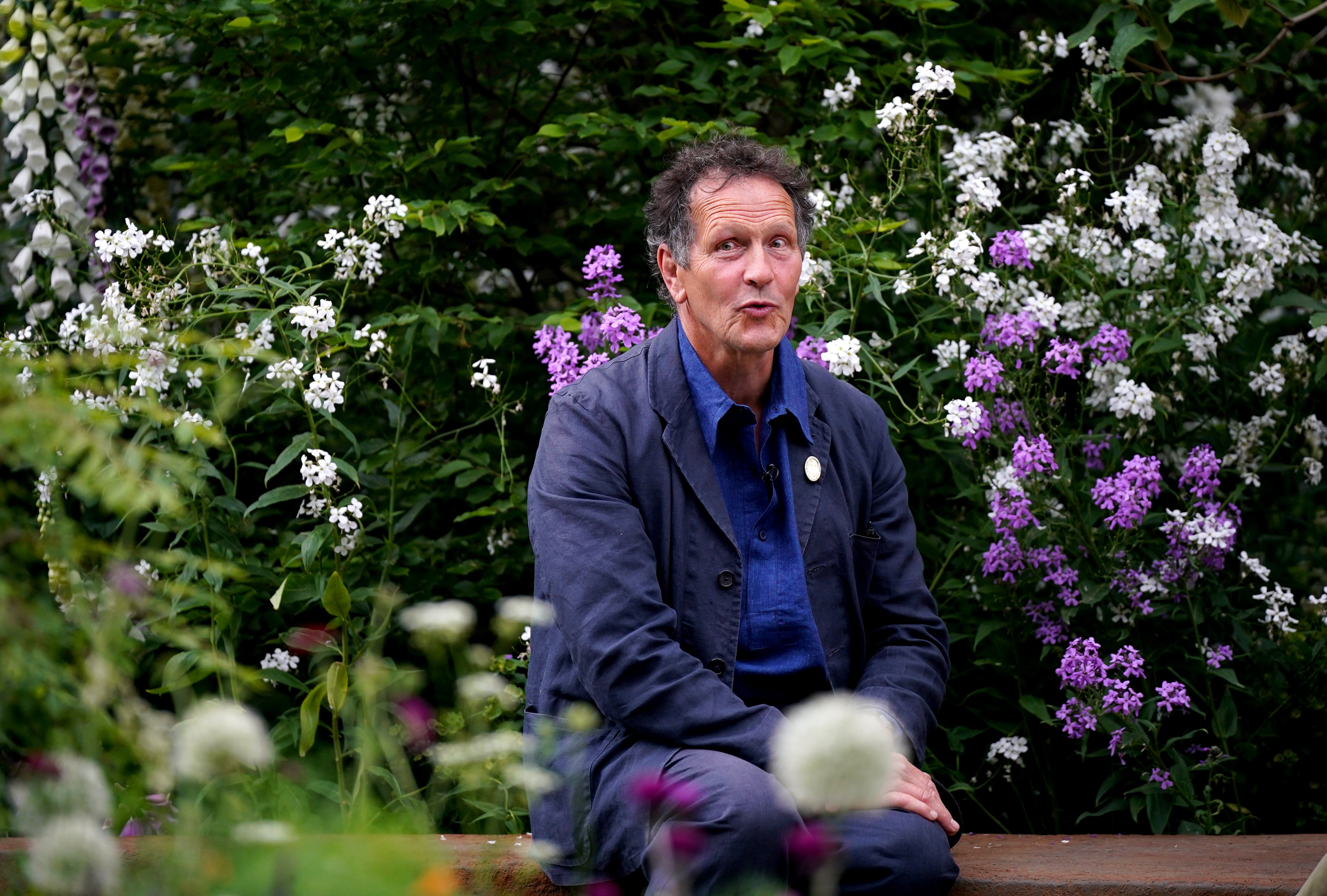Monty Don ‘hated gardening’ as a boy but says it is key to wellbeing
The TV star said gardens also provide a first-hand connection with nature.

TV gardener Monty Don has admitted he hated gardening as a boy, as he urged guests at the Chelsea Flower Show to encourage young people into the sector.
In a personal speech at a lunch event on the first day of the world-famous horticultural show, the 66-year-old described how gardening had become a passion that helped him with mental health challenges.
He said gardening and gardens are hugely important for wellbeing and for bringing people closer to nature.
But he admitted that he had not always felt that way, when he was “dragooned” into helping out in the large garden of the house he grew up in in Hampshire.
“You were expected to go and work in the garden and that would earn you the right to go and play, and of course I deeply resented this.
“I hated bloody gardening, because it stopped me doing what I wanted to do.
“However, I’m extremely grateful, because, along the way, grudgingly, I did learn about it,” he said.
He described an experience of sowing carrot seeds as a teenager and how he was filled with “pure joy, ecstasy, this sense of being in the right place, of everything being OK”.
The BBC Gardeners’ World presenter said his profession is writing and broadcasting but gardening is his passion.
“It eases a troubled mind. It is happiness,” he said.
“It’s good that mental illness is gradually being destigmatised, but there is so much more we have to do, even to begin to get to grips with the problem.”
So many people discovered during lockdown two years ago - that first lockdown with that extraordinary spring - every garden, no matter how small, how humble, how modest, how inexperienced, is rich with wildlife
He said mental health treatment is under-resourced, under-researched and staff are overworked, describing it as a “major national problem”, but added that gardening can help people to heal.
He also said: “So many people discovered during lockdown two years ago – that first lockdown with that extraordinary spring – every garden, no matter how small, how humble, how modest, how inexperienced, is rich with wildlife.
“And in the garden we get that first-hand connection with nature, and it’s as direct and as personal as most people are ever going to experience.”
He said gardens are the basis for a sustainable, healthy mind, and called for every school to have a garden, with lessons outside as much as possible, every new housing estate to have a communal garden, and for planners to insist on allotments with all new developments over a certain size.
Children should be shown from the earliest possible age that this world, this lovely troubled world, is here in all its glory on our doorstep
“Children should be shown from the earliest possible age that this world, this lovely troubled world, is here in all its glory on our doorstep, that the care for this planet and each other begins at home, not in the rainforests and ice caps.
“And that the robins and blackbirds and the cabbage white butterflies, and even the worms and the beetles, are every bit as important and interesting as the snow leopard or the blue whale,” he said.
He warned that the vast majority of 18 to 35-year-olds do not feel horticulturally enfranchised, that the Chelsea Flower Show, the Royal Horticultural Society, and Gardeners’ World is for them.
He said the sector needs young people and “we all of us need to embrace and encourage and welcome in a younger generation”, adding it is the most important work that he has left in his life.